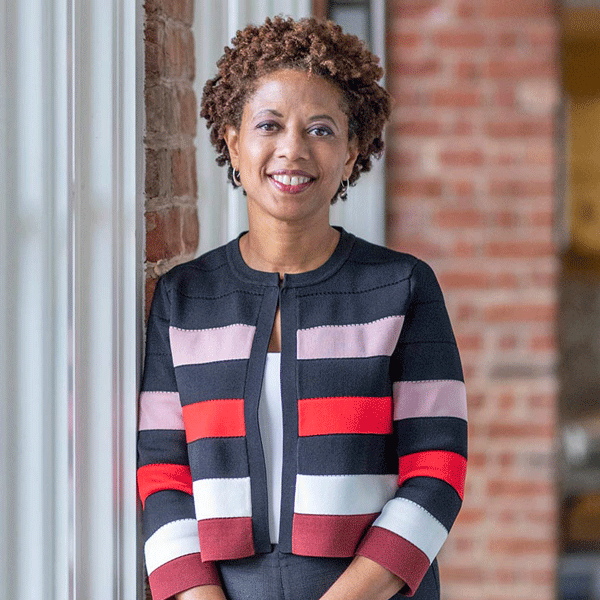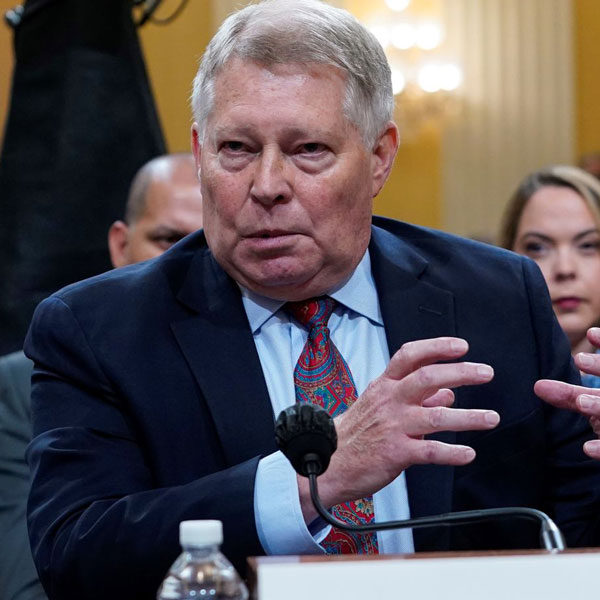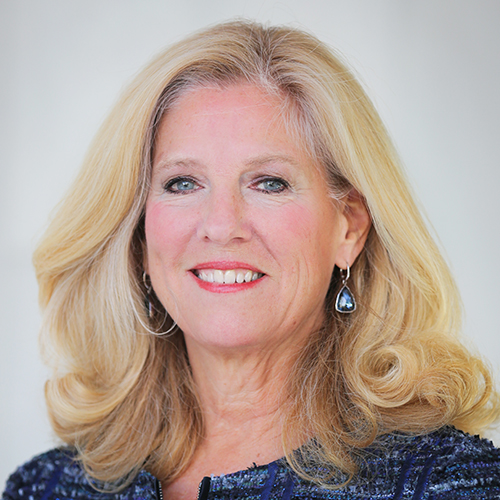The Business Case for Democracy: The Private Sector’s Role in Healthy Civic Life
Melody Barnes, J. Michael Luttig, Suzanne Spaulding

What are the ways that the private sector can help us shape and strengthen democratic institutions, including the rule of law and the preservation of free speech?
After retiring as a U.S. Court of Appeals judge in 2006, J. Michael Luttig served as general counsel for Boeing until 2019. With experience in both the public and private sectors, Judge Luttig—a distinguished fellow in law and democracy at the Karsh Institute of Democracy—sits down with Suzanne Spaulding, senior advisor for homeland security and director of the Defending Democratic Institutions project at the Center for Strategic and International Studies (CSIS) to answer the question: What responsibility do businesses have in helping strengthen the civic space?
This event is co-hosted by CSIS and the Karsh Institute.
Speakers

Melody Barnes
Executive Director, UVA's Karsh Institute of Democracy
W.L. Lyons Brown Family Director for Policy and Public Engagement

Melody Barnes
Executive Director, UVA's Karsh Institute of Democracy
W.L. Lyons Brown Family Director for Policy and Public Engagement
As the founding executive director of the University of Virginia’s Karsh Institute of Democracy, Melody Barnes guides the organization on an action-oriented path to realizing democracy in both principle and practice.
Barnes is a dedicated public servant with more than 25 years of experience crafting public policy. She served in the administration of President Barack Obama as assistant to the president and director of the White House Domestic Policy Council. Earlier in her career, Barnes was executive vice president for policy at the Center for American Progress and chief counsel to the late Senator Ted Kennedy on the U.S. Senate Judiciary Committee. Barnes started her career in New York as an associate at Shearman & Sterling.
Barnes earned her BA from the University of North Carolina at Chapel Hill, where she graduated with honors in history, and her JD from the University of Michigan. In addition to her role at the Karsh Institute, Barnes is the J. Wilson Newman Professor of Governance at UVA’s Miller Center of Public Affairs, a distinguished fellow at UVA’s School of Law, and co-founder of the domestic-policy strategy firm MB2 Solutions. She serves on the boards of directors of several corporate, non-profit, and philanthropic organizations.

J. Michael Luttig
Distinguished Fellow in Law and Democracy, University of Virginia
Former Judge on the U.S. Court of Appeals for the Fourth Circuit

J. Michael Luttig
Distinguished Fellow in Law and Democracy, University of Virginia
Former Judge on the U.S. Court of Appeals for the Fourth Circuit
Judge J. Michael Luttig joins the University of Virginia’s Karsh Institute of Democracy as its first Distinguished Fellow in Law and Democracy, a position sponsored in partnership with the Karsh Center for Law and Democracy at the UVA School of Law. Luttig served on the U.S. Court of Appeals for the Fourth Circuit for 15 years, from 1991 to 2006, having been appointed by former President George H. W. Bush. Luttig is currently counselor and special advisor to the Coca-Cola Company and the board of directors of the Coca-Cola Company. Luttig was executive vice president and general counsel of the Boeing Company from 2006 to 2020. Before that, he served as assistant attorney general at the US Department of Justice and as counselor to the attorney general of the United States. Luttig was assistant counsel to the president at the White House from 1981 to 1982 under former President Ronald Reagan. From 1982 to 1983, he was a law clerk to then-Judge Antonin Scalia of the US Court of Appeals for the District of Columbia Circuit. From 1983 to 1985, he served as a law clerk and then special assistant to Chief Justice of the United States Warren E. Burger. Luttig earned his bachelor’s degree from Washington and Lee University and his law degree from the University of Virginia.

Suzanne Spaulding
Director, Defending Democratic Institutions Project, Center for Strategic and International Studies (CLAS ‘78, Law ‘81)

Suzanne Spaulding
Director, Defending Democratic Institutions Project, Center for Strategic and International Studies (CLAS ‘78, Law ‘81)
Suzanne Spaulding is the Director of the Defending Democratic Institutions project at the Center for Strategic and International Studies (CSIS). Previously, she served as undersecretary for the Department of Homeland Security (DHS), where she led the National Protection and Programs Directorate, now called the Cybersecurity and Infrastructure Security Agency (CISA), managing a $3 billion budget and a workforce of 18,000 that is charged with strengthening cybersecurity and protecting the nation’s critical infrastructure, including election infrastructure. She also served as a member of the Cyberspace Solarium Commission from 2019–2020. Ms. Spaulding has worked in the executive branch in Republican and Democratic administrations and on both sides of the aisle in Congress. She was general counsel for the Senate Select Committee on Intelligence and minority staff director for the House of Representatives Permanent Select Committee on Intelligence. She also spent six years at the Central Intelligence Agency, where she was assistant general counsel and the legal adviser to the director’s Nonproliferation Center. She was executive director of two congressionally created commissions, on weapons of mass destruction and on terrorism. Following the attacks of 9/11, Ms. Spaulding worked with key critical infrastructure sectors as they reviewed their security posture and advised the CEOs of the Business Roundtable. In 2002, she was appointed by Governor Mark Warner of Virginia to the Secure Commonwealth Panel to advise the governor and the legislature regarding preparedness issues. She was managing partner of the Harbour Group, a principal in the Bingham Consulting Group, and of counsel to Bingham McCutchen LLP. In addition to her work at CSIS, Ms. Spaulding currently serves on a number of corporate boards and advisory boards and is a member of the Homeland Security Experts Group (HSEG).